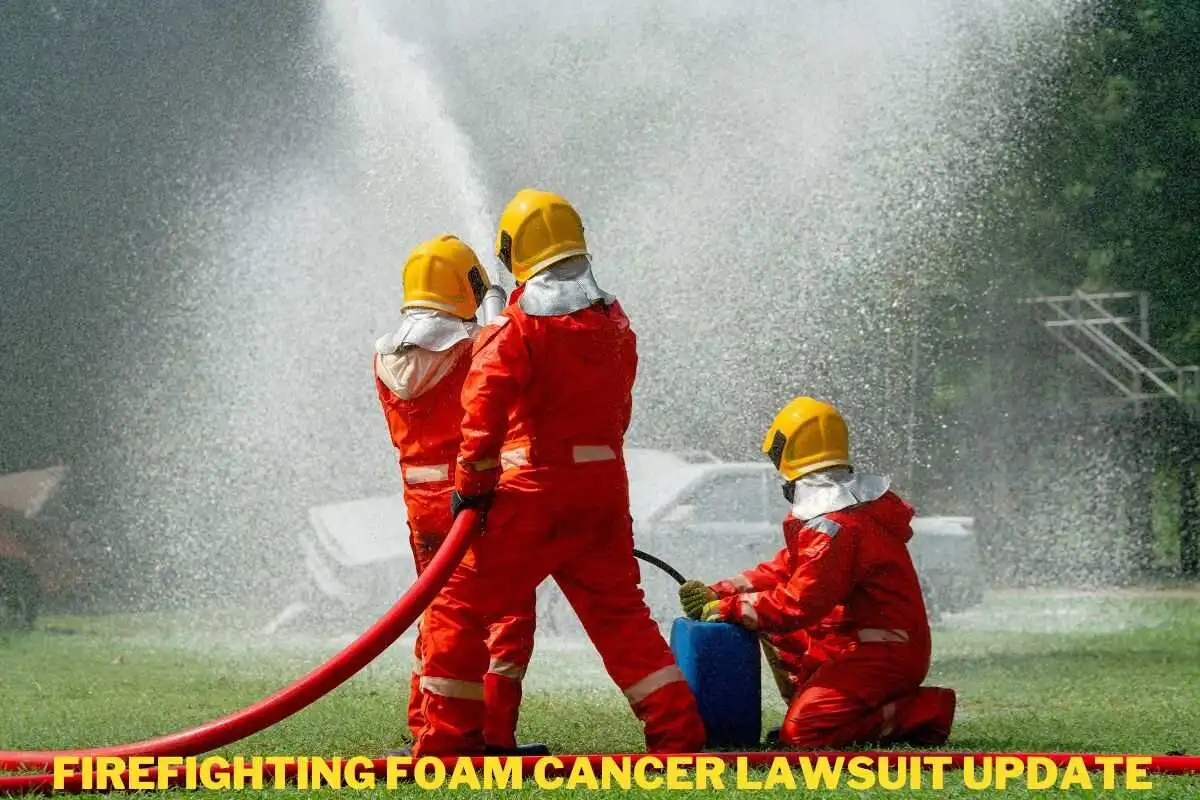Firefighting foam, also known as aqueous film-forming foam (AFFF), has been widely used in firefighting and industrial settings since the 1970s. However, the per- and polyfluoroalkyl substances (PFAS), in particular, that are present in these foams have been associated with a variety of illnesses, including cancer.
The International Agency for Research on Cancer (IARC) has determined that PFAS, found in AFFF, are toxic and have the potential to cause cancer in both animals and humans. As a result, there have been several lawsuits filed against the manufacturers of AFFF in recent years.
Here’s what you should know about the current status of firefighting foam cancer lawsuits in 2023:
Background on PFAS and AFFF
PFAS are a group of synthetic chemicals that have been used in a variety of products, including firefighting foam. These chemicals are known as “forever chemicals” because they do not break down easily and can remain in the environment and human bodies for a long time. PFAS have been linked to a range of health problems, including cancer, thyroid disease, and liver damage.
The firefighting foam known as AFFF is specifically formulated to suppress fires that involve flammable liquids, including but not limited to gasoline and jet fuel. AFFF contains PFAS because these chemicals help the foam spread over the surface of the liquid and create a barrier that prevents the fire from reigniting.
Lawsuits Against AFFF Manufacturers
Several lawsuits have been filed against the manufacturers of AFFF, including 3M Company, Chemours Company, and Tyco Fire Products. The individuals who have filed these lawsuits claim that the companies were aware of the health hazards linked to PFAS but neglected to inform the general public.
Many law firms across the country have been representing individuals and communities in legal action against AFFF manufacturers. These law firms specialize in environmental law, toxic torts, and personal injury cases related to PFAS exposure.
TorHoerman Law, LLC is one of the law firms involved in the firefighter foam cancer lawsuit. The firm has represented individuals and communities affected by environmental contamination and has been actively seeking justice and compensation for its clients.
Recent Updates and Developments
Legal Help Advisor reports that currently, there are more than 3,400 AFFF lawsuits awaiting litigation in a multidistrict lawsuit in the District Court of South Carolina. The forthcoming bellwether trials will determine legal issues related to the extent of the connection between firefighting foam and the development of cancer.
AboutLawsuits reports that the initial set of bellwether trials in AFFF lawsuits was set to commence in January 2023. However, a new case management order issued on May 5 has postponed the start date to at least March 1, 2023.
A Lawsuit Information Center update from March 2023 states that a recent case has been filed. The plaintiff, a former military firefighter in the Marine Corps from Texas, alleges that he developed prostate cancer as a result of his exposure to AFFF firefighting foam while on the job.
This new case adds to the growing number of lawsuits filed by individuals who were exposed to AFFF and developed serious health conditions, highlighting the urgent need for companies to prioritize safety and ensure that their products do not pose a threat to public health.
What You Can Do
If you or a loved one has been diagnosed with cancer or another health problem that may be linked to PFAS exposure, you may be eligible to file a lawsuit against the manufacturers of AFFF. It’s important to speak with an experienced attorney who can evaluate your case and help you understand your legal options.
In addition to legal action, there are steps you can take to reduce your exposure to PFAS. These include avoiding products that contain PFAS, such as non-stick cookware and stain-resistant fabrics, and using alternative firefighting methods that do not involve AFFF. Additionally, installing a water filtration system at home or using a pitcher with a filter can help reduce exposure to PFAS in drinking water.
Conclusion
The ongoing lawsuits against AFFF manufacturers highlight the devastating impact of PFAS exposure on public health. As more and more individuals come forward with health problems linked to firefighting foam, it is clear that urgent action is needed to address this issue.
While legal action can provide some justice and compensation for those affected, it is also important for companies to take responsibility for the safety of their products and prioritize the use of safer alternatives.
It is crucial for individuals to be informed about PFAS and take steps to reduce their exposure, ultimately advocating for stronger regulations and environmental protections to prevent future harm.
Also read:

